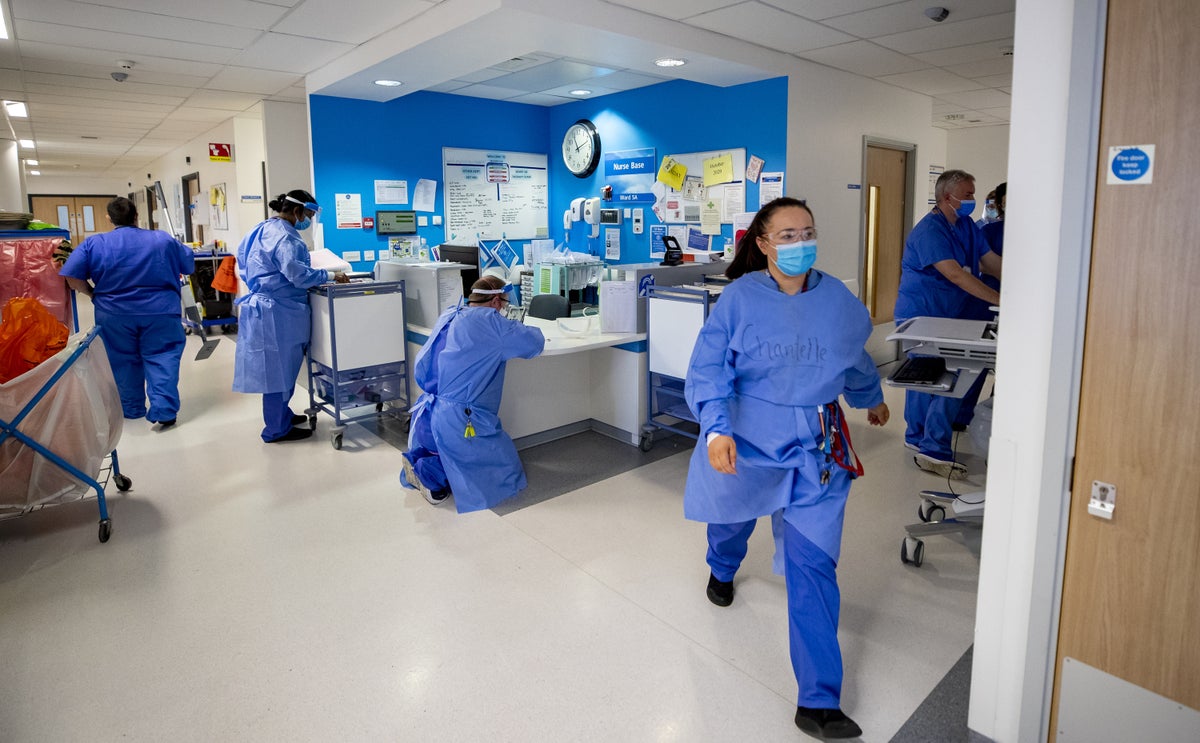
Sickle cell patients’ experiences of barriers to treatment and racial inequalities will be investigated by an NHS body next month, The Independent has learned.
The NHS Race and Health Observatory has collaborated with Public Digital, a consultancy group, to lead original research into the experiences of people with sickle cell, including listening to NHS patients’ and carers’ first-hand accounts of acute emergency hospital admissions and managing the condition at home.
Research will focus on a series of interviews and ‘experience mapping’ workshops, the findings of which are anticipated to inform recommendations that will help improve emergency care and treatment pathways.
Sickle cell disease is one of the most common genetic conditions in England, affecting around 15,000 people and mainly occurs in Black people.
“As a priority, we need to discover new measures and treatment plans that can help eradicate the often unacceptable, substandard care people with sickle cell have historically received whilst being unwell and in acute pain,” Dr Habib Naqvi, Director of the NHS Race and Health Observatory, said.
“This is not a new, unknown condition. Sickle cell disease was identified over a hundred years ago, but to date it has been associated with limited resource, innovation, and research.”
This move comes after a parliamentary inquiry into avoidable sickle cell deaths called upon the Observatory to undertake work into sickle cell care in relation to race and ethnicity.
The inquiry published a report, ‘No one’s listening’, in November 2021, which uncovered the bleak reality of patients grappling with racism in the NHS while attempting to access healthcare.
Only half of healthcare professionals feel they have sufficient tools to manage the long-term damage that sickle cell disease brings, new research from Global Blood Therapeutics found, following extensive studies carried out across 10 countries including the UK, US and Canada.
In June, Amanda Pritchard, chief executive of the NHS in England, acknowledged that more needs to be done to tackle health inequalities across England, having raised concern about the treatment of some people with the condition.
This week, the NHS issued an urgent call for more blood donors of Black heritage as new figures reveal a record 250 donations are now needed every day to treat sickle cell, the fastest growing genetic condition in the UK.
According to the National Institute for Health and Care Excellence (NICE), sickle cell is on the increase in mixed-race families.
Whilst the life-limiting disease causes regular hospitalisation for severe pain bouts, there’s no cure.
The observatory will shortly announce the outcomes of two additional pieces of research around sickle cell disease: one will review how funding is allocated for this illness in comparison to other rare inherited diseases such as Cystic Fibrosis, and the other will be a new research trial to identify how best to manage acute, painful episodes.
John James OBE, Chief Executive, Sickle Cell Society, said: “The Sickle Cell Society looks forward to working with Public Digital and the Observatory to help the NHS address the serious health inequalities affecting the lives of people living with sickle cell disorder and their families.
“This work is long overdue and we hope it will shift the dial positively towards securing real improvements in sickle cell care and outcomes for patients.”







